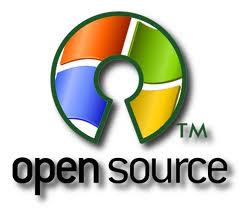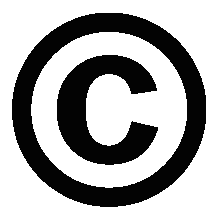Think of this as Volume 16, Number 48 of A-Clue.com, the online newsletter I've written since 1997. Enjoy.

election I began looking back at all the stories I've written, since
2006, on political philosophy.
I was looking for patterns,
and frankly for an e-book.
My review is far from
complete – there are over 200 pages just in the first year I began
my work – but what I have found is that my views on political
patterns were first informed by my work on open source. I first
wrote about what I called the “open source thesis” in 2006 , and I
found, even then, that it matched up very well with the political
aims of one Barack Obama.

for ZDNet, pretty much full-time, from 2005 to 2010. Most of my work
covered the search for a “billion dollar” open source company (a
search which finally ended this year with Red Hat), as though
financial gain were the solitary goal.
What I learned fairly
quickly is that proprietary measures aren't the point of open source.
Open source is less about making money from code as it is about
sharing the code workload, growing the totality of wealth. The more
you or your company give to an open source project, in other words,
the more you get as you gain the benefits of others' work on the same
code base.
The best example from this
current year is Rackspace.
Rackspace was just-another Web host until they got together with NASA
scientists to launch an open source project called OpenStack. This is
a fully open source cloud infrastructure, and is loosely based on
work originally done by NASA for its own use. (NASA felt it would get
more out of the code base if it went open source, and got others'
buy-in.)

OpenStack until this year, when the project was passed to an
independent OpenStack Foundation,
whose structure is loosely based on those of the Apache or Eclipse
Foundations (a little more corporate). You would think that, after it
“gave up control” of OpenStack, Rackspace would fall to Earth.
But that hasn't happened. The company has instead gone from
strength-to-strength, increasing its revenue base each quarter, and
becoming increasingly profitable as well.
Many other companies,
including Hewlett-Packard and Dell, have gone into the OpenStack
business. Dell is basing its whole strategy on it, and has put all
its efforts into building a network of OpenStack clouds and buying
software that extends it. But guess what's happened? Dell has
continued to fall, down 39% over the last year, while Rackspace has
continued to gain, now up 56%.
Why is that? Because
Rackspace is fully committed to the code base. It still has more
committers at OpenStack than any other company. The only company that can compare is Red Hat, which is building a
cloud platform called OpenShift on top of it. So if you're interested
in using OpenStack in your company, who are you gonna call? To use
the breakfast analogy, Dell is the egg but Rackspace is the bacon –
it's committed to the enterprise. To the open source enterprise.
This is just one example. It
can be analogized all across the economy, and this economic process
represents a grave legal threat to our ideas of patent and copyright.
Or does it?
Gigi Sohn notes, in her
recent Public Knowledge piece about copyright reform,
that these rights are part of the Constitution, but they have a
specific purpose, and it's not private wealth. It's to “advance
science and the useful arts.”
This idea of shared wealth
from ideas, as opposed to owned wealth from ideas, sounds foreign to
some ears. But corporations are not people, my friend. They're a
method for sharing wealth, by organizing the work of many people to
do what no one person can do alone. To an extent, the argument of
“individual or group” in relation to patent and copyright ended a
long time ago. The group idea won.

clerk, in 1886, inserted a note calling corporations “people”
into an unrelated railroad decision,
this point has become obscured. We think of corporations as
individuals, not as collectives, when collectives are what they are.
It was only after this decision, in fact, that the copyright act came
to be in concert with international norms.
So the idea of sharing ideas
in order to advance science and art was settled long ago. Most
patents and copyrights today are held by corporations, not by
individuals. The heart of the open source thesis is merely extending
this sharing realm from the space within corporations to that between
them, expanding the wealth to be gained by sharing it, as
corporations have shared that wealth for over a century.
The Southern Pacific
decision and International Copyright Act came about in the run-up to
what I've called America's second existential crisis, the Progressive
Era. It turned on the election of 1896, on William McKinley, as our
era has turned on the 2008 election of Barack Obama. The rise of open
source matches up pretty well, in terms of the timeline, with that
earlier time. And the subject in both cases is the same, opening up
value by finding new ways to share wealth.
Open source is people, my
friend.










Nice post well The transition is a wonderful step forward, and also means that it is much easier to distribute the dissertation.
Nice post well The transition is a wonderful step forward, and also means that it is much easier to distribute the dissertation.